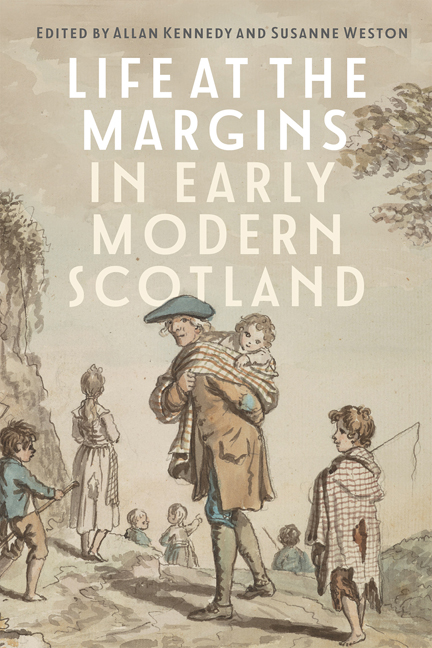8 - ‘Huirdome and Harlettrie’: Female Sex Workers in Early Modern Edinburgh, 1689–1760
Published online by Cambridge University Press: 08 May 2024
Summary
On 25 January 1759, Margaret Malcolm, the daughter of a shoemaker in Elgin, was admonished before the magistrates of Edinburgh after being found in a bawdy house owned by Janet Dryburgh. The magistrates acknowledged Malcolm's plea that she had no other ‘honest and virtuous way of making her bread’, and so, to avoid trial and punishment, they instead banished her from the city. The ‘bawdy house’ from which Malcom was removed was situated in South Gray's Close, also known as Mint Close – part of a narrow street that extended south from the High Street to the Cowgate. The establishment was one of at least four similar premises in Edinburgh operated by Dryburgh from 1756 to 1759, and Margaret Malcolm was her employee. For the most part, when the city constables detected and raided an establishment, both employer and employee relocated, usually within the same area, and continued their trade. Dryburgh and Malcolm were just two of the hundreds of sex workers in early modern Edinburgh, women who, despite facing banishment, imprisonment, public humiliation, and corporal punishment, continued to ‘make their bread’ through the sale of sex.
In early modern Scotland, social order and moral rectitude were considered essential requisites for any civil society. Accordingly, those who deviated from accepted standards of behaviour were subject to punitive measures and social censure, and this was particularly prevalent after 1700 when moral reformers and clergy railed against the immorality of the people. It is therefore unsurprising that the historical analysis of sex and sexuality has hitherto been considered through an important, yet narrow, framework of deviance and criminality. Only recently have historians moved beyond the moral and judicial approach to sex and begun to consider sex work in its broader socio-economic context. Susan McDonough, for example, has demonstrated the essential role of sex workers as ‘knowledge brokers’ in late-medieval Mediterranean port towns. While, she argues, sex workers in city brothels came in contact with a diverse segment of the population, and it was through this broad engagement with travellers, civic officials, and the like, rather than their sexual activities, that sex workers ‘accrued, shared and disseminated knowledge about how port cities worked’.
- Type
- Chapter
- Information
- Life at the Margins in Early Modern Scotland , pp. 130 - 144Publisher: Boydell & BrewerPrint publication year: 2024

